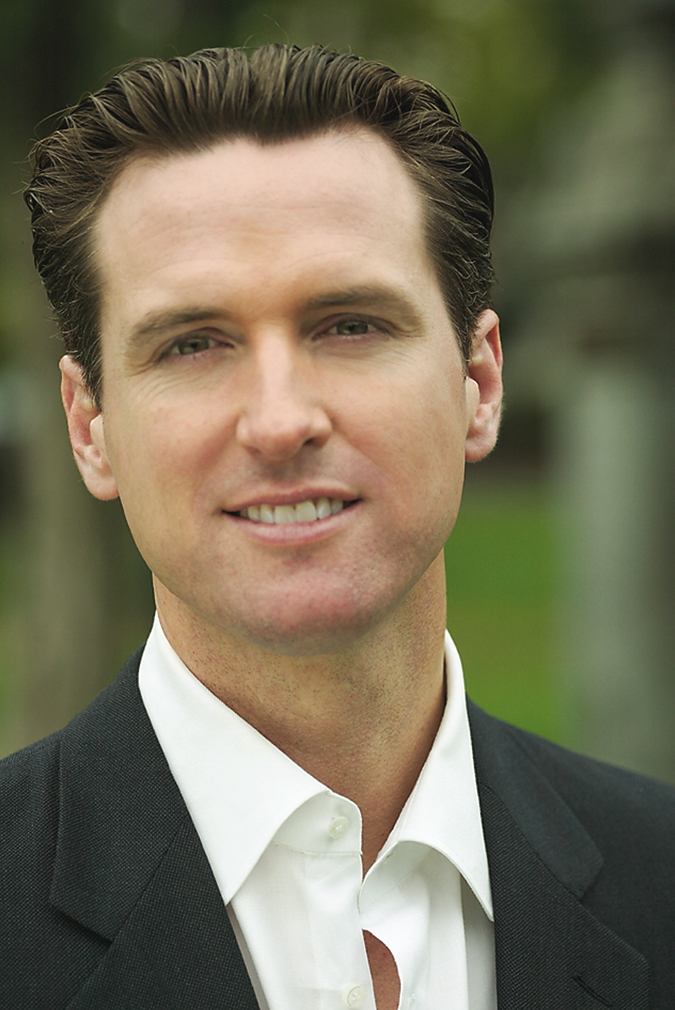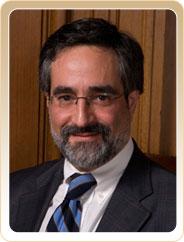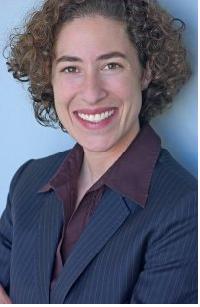steve@sfbg.com
City Attorney Dennis Herrera relishes his reputation as a crusading reformer. For several years, his official Web site prominently displayed the phrase "Activism defines SF City Attorney’s Office," linked to a laudatory 2004 Los Angeles Times article with that headline.
"Doing what we can do to ensure civil rights for everyone is not something we are going to back away from," was the quote from that piece Herrera chose to highlight on his homepage, referring to his work on marriage equality. The article also praises the City Attorney’s Office practice of proactively filing cases to protect public health and the environment and to expand consumer rights.
But more recently the City Attorney’s Office also has aggressively pushed cases that create troubling precedents for civil rights and prevent law enforcement officials from being held accountable for false arrests, abusive behavior, mistreatment of detainees, and even allegedly framing innocent people for murder.
Three particular cases, which have been the subject of past stories by the Guardian, reveal unacceptable official conduct — yet each was aggressively challenged using the virtually unlimited resources of the City Attorney’s Office. In fact, Herrera’s team pushed these cases to the point of potentially establishing troubling precedents that could apply throughout the country.
Attorney Peter Keane, who teaches ethics at Golden Gate University School of Law and used to evaluate police conduct cases as a member of the Police Commission, said city attorneys sometimes find themselves trapped between their dual obligations to promote the public good and vigorously defend their clients. "Therein lies the problem, and it’s a problem that can’t be easily reconciled," he told us.
"A lawyer’s obligation is to give total loyalty to a client within ethical limits," Keane said, noting his respect for Herrera. But in police misconduct cases, Keane said, "it is desirable public policy to have police engage in ethical conduct and not do anything to abuse citizens."
RODEL RODIS VS. SF
Attorney Rodel Rodis is a prominent Filipino activist, newspaper columnist, and until this year was a longtime elected member of the City College of San Francisco Board of Trustees. So it never made much sense that he would knowingly try to pass a counterfeit $100 bill at his neighborhood Walgreens in 2003 (see "Real money, false arrest," 7/9/08).
Nonetheless, the store clerk was unfamiliar with an older bill Rodis used to pay for a purchase and called police, who immediately placed Rodis in handcuffs. When police couldn’t conclusively determine whether the bill was real, they dragged Rodis out of the store, placed him in a patrol car out front, and took him in for questioning while they tested the bill.
There was no need to arrest him, as subsequent San Francisco Police Department orders clarified. They could simply have taken his name and the bill and allowed him to retrieve it later. After all, mere possession of a counterfeit bill doesn’t indicate criminal intent.
The police finally determined that the bill was real and released Rodis from his handcuffs and police custody. Rodis was outraged by his treatment, and sued. He insisted that the case was about the civil rights principle and not the money — indeed, he says he offered to settle with the city for a mere $15,000.
"I told my lawyer that I didn’t want a precedent that would hurt civil liberties," Rodis told the Guardian.
To his surprise, however, the City Attorney’s Office aggressively appealed rulings in Rodis’ favor all the way up to the U.S. Supreme Court, which found that the officers enjoyed immunity and ordered reconsideration by the Ninth Circuit Court of Appeals. Last month the Ninth Circuit ruled in the city’s favor, thus expanding protections for police officers.
Rodis can now name cases from around the country, all with egregious police misconduct, that cite his case as support. "Even with that kind of abuse, people can no longer sue because of my case," Rodis said.
Herrera disputes the precedent-setting nature of the case, saying the facts of each case are different. "We’re defending them in accordance with the state of the law as it stands today," Herrera said, arguing that officers in the Rodis case acted reasonably, even if they got it wrong. "We look at each case on its facts and its merits."
Herrera said he agrees with Keane that it’s often a difficult balancing act to promote policies that protect San Francisco citizens from abuse while defending city officials accused of that abuse. But ultimately, he said, "I have the ethical obligation to defend the interests of the City and County of San Francisco."
While it may be easy to criticize those who bring lawsuits seeking public funds, Rodis says it is these very cases that set the limits on police behavior and accountability. As he observed, "The difference between police in a democracy and a dictatorship is not the potential for abuse, but the liability for abuse."
MARY BULL VS. SF
In the run-up to the U.S. invasion of Iraq in 2003, there were months of antiwar protests resulting in thousands of arrests in San Francisco. Activist Mary Bull was arrested in November 2002. Bull said she was forcibly and illegally strip-searched and left naked in a cold cell for 14 hours.
San Francisco’s policy at the time — which called for strip-searching almost all inmates — was already a shaky legal ground. Years earlier Bull had won a sizable settlement against Sacramento County because she and other activists were strip-searched after being arrested for protesting a logging plan, a legal outcome that led most California counties to change their strip-search policies.
So Bull filed a lawsuit against San Francisco in 2003. The San Francisco Chronicle ran front page story in September 2003 highlighting Bull’s ordeal and another case of a woman arrested on minor charges being strip-searched, prompting all the major mayoral candidates at the time, including Gavin Newsom, to call for reform. Sheriff Michael Hennessey later modified jail policies on strip searches, conforming it to existing case law.
But the City Attorney’s Office has continued to fight Bull’s case, appealing two rulings in favor of Bull, pushing the case to the full Ninth Circuit Court of Appeals (from which a ruling is expected soon) and threatening to appeal an unfavorable ruling all the way to the U.S. Supreme Court.
"It’s pretty outrageous and humiliating to strip-search someone brought to jail on minor charges," Bull’s attorney Mark Merin told the Guardian. "If they win, they establish a bad precedent."
Herrera said the case is about inmate safety and that his office must follow case law and pursue reasonable settlements (neither side would say how much money Bull is seeking). "We do it well and we do it with a sense of justice at its core," Herrera said.
Yet Merin said the city’s actions fly in the face of established law: "In the Bull case, he’s trying to get 25 years of precedent reversed."
Merlin noted that "the problem is not with the city, it’s with the U.S. Supreme Court." In other words, by pushing cases to a right-leaning court, the city could be driving legal precedents that directly contradict its own stated policies.
"It would be nice if this city was in a different league, but they look at it like any defense firm: take it to the mat, yield no quarter" he added.
JOHN TENNISON VS. SF
For the Guardian, and for all the attorneys involved, this was a once-in-a-lifetime case. In 1990, Hunters Point residents John J. Tennison and Antoine Goff were convicted of the 1989 gang-related murder of Roderick Shannon and later given sentences of 25 years to life.
Jeff Adachi, Tennison’s attorney and now the city’s elected public defender, was shocked by a verdict that was based almost solely on the constantly mutating testimony of two young girls, ages 12 and 14, who were joyriding in a stolen car, so he continued to gather evidence.
Eventually Adachi discovered that police inspectors Earl Sanders and Napoleon Hendrix and prosecutor George Butterworth had withheld key exculpatory evidence in the case, including damaging polygraph tests on the key witnesses, other eyewitness testimony fingering a man named Lovinsky Ricard, and even a taped confession in which Ricard admitted to the murder.
After writer A.C. Thompson and the Guardian published a cover story on the case (see "The Hardest Time," 1/17/01), it was picked up pro bono by attorneys Ethan Balogh and Elliot Peters of the high-powered firm Keker & Van Nest LLP, who unearthed even more evidence that the men had been framed, including a sworn statement by one of the two key prosecution witnesses recanting her testimony and saying city officials had coached her to lie.
In 2003, federal Judge Claudia Wilken agreed to hear Tennison’s case and ruled that the prosecution team had illegally buried five different pieces of exculpatory evidence, any one of which "could have caused the result of Tennison’s new trial motion and of his trial to have been different."
She ordered Tennison immediately freed after 13 years in prison. The district attorney at the time, Terrence Hallinan, not only agreed and decided not to retry Tennison, he proactively sought the release of Goff, who was freed a few weeks later.
"The only case you can make is that this was an intentional suppression of evidence that led to the conviction of any innocent man," Adachi told the Guardian in 2003 (see "Innocent!" 9/3/03). In the article, Hallinan said "I don’t just believe this was an improper conviction; I believe Tennison is an innocent man."
But the pair has had a harder time winning compensation for their lost years. State judges denied their request, relying on the initial jury verdict, so they sued San Francisco in 2003, alleging that the prosecution team intentionally deprived them of their basic rights.
"What happened to these guys was a horrible miscarriage of justice," Balogh said.
The City Attorney’s Office has aggressively fought the case, arguing that the prosecution team enjoys blanket immunity. The courts haven’t agreed with that contention at any level, although the city spent the last two years taking it all the way to the Ninth Circuit, which largely exonerated Butterworth. The case is now set for a full trial in federal district court in September.
"They are unwilling to admit they made a mistake," Elliot said. "They are doing everything not to face up to their responsibility to these two guys."
The lawyers said both Herrera and District Attorney Kamala Harris had an obligation to look into what happened in these cases, to punish official wrongdoing, and to try to bring the actual murderer to justice. Instead the case is still open, and the man who confessed has never been seriously pursued.
Harris spokesperson Erica Derryck said the Ninth Circuit and an internal investigation cleared Butterworth "of any wrongdoing," although she didn’t address Guardian questions about what Harris has done to close the case or address its shortcomings.
In fact, the lawyers say they’re surprised that the city is so aggressively pushing a case that could ultimately go very badly for the city, particularly given the mounting lawyers’ fees.
"When we filed the case, we never thought we’d be here today," Balogh said. "They had a bad hand and instead of folding it and trying to pursue justice in this case, they doubled down."
Herrera doesn’t see it that way, instead making a lawyerly argument about what the prosecution team knew and when. "Our belief is there is no evidence that Sanders and Hendrix had information early on that they suppressed," Herrera said. "Based on the facts, I don’t think they, Hendrix and Sanders, violated the law. But that’s a totally different issue than whether they were innocent…. It’s not our role to retry the innocence or guilt of Tennison and Goff."
Herrera said he’s limited by the specific facts of this case and the relevant laws. "If the Board of Supervisors wants to do a grant of public funds [to Tennison and Goff], someone can legislate that. But that’s not my job," Herrera said.
As far as settling the case in the interests of justice or avoiding a precedent that protects police even when they frame someone for murder, he also said it isn’t that simple. Keane also agreed it wouldn’t be ethical to settle a case to avoid bad precedents.
"I’m always willing to talk settlement," Herrera said. "This is not an office that makes rash decisions about the cases it chooses to try or settle."
Deputy City Attorney Scott Wiener is the point person on most police misconduct cases, including the Rodis and Tennison cases, as well as another current case in which Officer Sean Frost hit a subdued suspect, Chen Ming, in the face with his baton, breaking his jaw and knocking out 10 teeth.
Wiener, who is running for the District 8 seat on the Board of Supervisors and is expected to get backing from the San Francisco Police Officers Association, recently told the Chronicle that Frost "did not do anything wrong." Contacted by the Guardian, Wiener stood by that statement and his record on police cases, but said, "I consider myself to be fair-minded." He also denied having a strong pro-police bias.
Yet those involved with these cases say they go far beyond the zeal of one deputy or the need to safeguard the public treasury. They say that a city like San Francisco needs to put its resources into the service of its values.
"It raises the broader question of what is the city attorney’s mandate? Is it fiscal limitation regardless of the truth?" Balogh said. "Dennis Herrera has had a very aggressive policy in defending police officers."
Herrera says he is proud of his record as the city attorney, and before that, as president of the Police Commission. "I believe in police accountability and have made that a big part of what I’ve done throughout my career."








